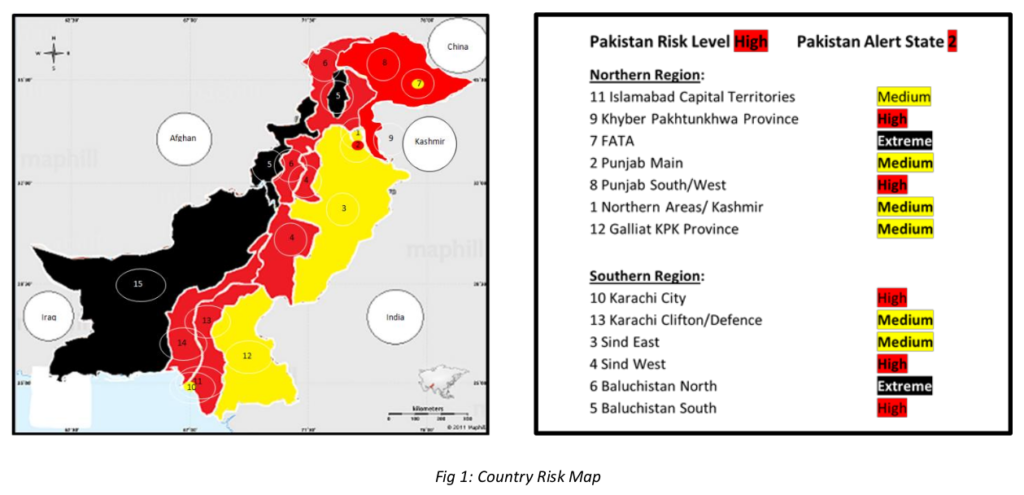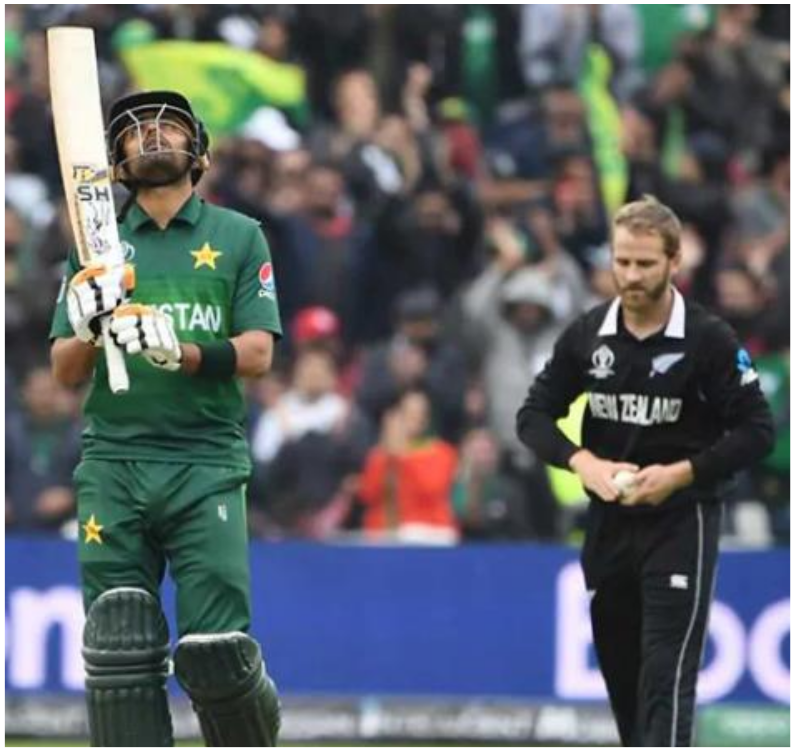Address
304 North Cardinal St.
Dorchester Center, MA 02124
Work Hours
Monday to Friday: 7AM - 7PM
Weekend: 10AM - 5PM


Protecting people, assets and information
Assess Political, Economic and Security Operating Environment Risks
When GRC heard that the New Zealand Cricket Council were to carry out “due diligence” and consider a request from Pakistan to play a Twenty20 game in Lahore; the first reaction was Pakistan poses significant travel and security challenges.
A number of highly experienced security risk management consulting companies had personnel operating in the region over a number of years and had seen firsthand the inherent dangers when trying to manage commercial activity in this environment. In 2013 Pakistan was considered one of the most dangerous countries in the world (in the top five – 2015). In 2009, international sporting tours were stopped after gunman killed five people on the Sri Lankan team bus. The internal security issues at play in Pakistan are greatly influenced by neighboring, Iran, Afghanistan, India and Kashmir.

Our organisation has been involved in international security risk management for a number of years, including in hostile and sometimes challenging environments such as the Middle East, Africa and Asia. Our journey begun with a number of Foreign States in the early 2000s, including Ambassadors, large Oil and Gas firms, global cementing and electrical firms, Middle East Royals and film industry have been among the many clients.
Pakistan has two major allies, both superpowers and economic partners to Pakistan, China to the north and the United States of America (US). The Americans invested heavily ($330 m per quarter – annually) over the past few decades, providing financial support for securing north-western borders and combating terrorism in FATA/SWAT, KPK and Baluchistan. For a number of years, the government had been slightly reluctant to intervene in FATA, KPK and Baluchistan’s (all rated extreme risk) political and security affairs with any form of Military presence, although this has since changed. A guerilla war waged by Baloch Nationalists had kept the region that borders Iran, Afghanistan and Pakistan unstable
and in turmoil for decades. The strong Taliban presence in the tribal areas of KPK has also made it extremely difficult for the Government to manage.
Political instability continues to plague Pakistan. There have been a number of military coups since the nation gained independence from Britain over seventy years ago. More recently Nawaz Sheriff was removed from power for election tampering and corruption allegations. The Nawaz government placed, Musharraf a former leader of Pakistan under house arrest when he returned from exile from the Kingdom of Saudi Arabia. I lived around the corner where he remained under house arrest for a number of months and learned first-hand that this did not sit well with the Military he once commanded. At the time I suspected Nawaz was on the Military radar himself because of his direct targeting of Musharraf trying to undermine a leader well thought of by the country’s Military commanders. I sensed it was only a matter of time before Nawaz himself would again be ousted and he was. This was a clear demonstration of Military power that will always remain key players in Pakistan’s political system.
History demonstrated that Pakistan had been in a constant state of turmoil since its independence. In the absence of a strong political system and allegations of corruption over the many years, has given rise to crime and armed conflict which has increased with international terror groups such as al Qaeda, the Taliban and ISIS (Daesh) more recently. It had been planned that a Silk Road corridor to be established by the Chinese; a six-lane highway from the northern China border to the Gwada port, in southern Baluchistan. The Silk Road would give China direct and easy access to Middle Eastern and African markets. Chinese investment into Pakistan will be substantial and would allow Pakistan to modernize its country (infrastructure development) with a global economic power and potentially unlocking Pakistan’s rich natural resources, including oil and gas, gold, coal etc.
At the time; Pakistan’s government wanted to bring stability to the region to ensure the Silk Road proceeded and conducted a sustained military offensive against domestic militants in the west of the country. The Taliban leadership structure remains in a state of upheaval as a number of commanders had been captured or killed by the Pakistan Military and others killed by US drone strikes in cross border operations; 1400 extremists killed and 2500 arrests in only a 6 month campaign. The risk assessment identifying security concerns facing the development of the Silk Road are the same issues that face
tourists, businesses wishing to establish a base for commercial activity and a tour by the New Zealand Cricket Team.
I spent two years in Pakistan as Country Security Risk Manager for one of the world’s largest oil and gas service provider based in Islamabad. One can never under value the significant learnings when conducting operations in a dynamic and hugely complex environment, considering the constant shifts in the security risk levels as a result of political decisions and security related incidences. This would at times affect the “Country Alert State” for clients followed by security advice.
Pakistan risk levels are assessed as High (-12.2 out of -25) on recent findings using a Country Security
Risk Assessment System where quantitative and qualitative data is crossed referenced by senior analysts and experienced global security consultants to ensure the threat and risk levels matched trends on the ground. It is important to measure all security elements (including political, terrorism, travel, operational and security risks) within the threat landscape so as to adjust the ratings accordingly. If no adjustments are made as a result of misinterpretation of those risks, then this gives rise to vulnerabilities for an organisation: and extremists and criminal elements become adept at spotting weaknesses within a security structure. These can invariably lead to fatalities, injuries and a loss of business caused by a sophisticated, well-funded, well-organised and sometimes complex attacks (using more than one item for the attack; ie improvised explosive devices (IED) combined with AK47’s and grenades etc).
When trying to improve security outcomes, it’s important to meet with the citizens and law enforcement of the local communities. They are a great source of free information if you apply a hearts and mind approach. They effectively become allies to your broader security cause. More often than not this is a usual first step for current and former Special Forces personnel and the Private Security world, but for individuals and companies, operating on their own, getting the locals on side is an often overlooked practice and it can lead to unfortunate consequences; either loss of life or some form of reputational damage. It is important to get the lay of the land early and trust your human instincts about the environment and people you deal with (what feels right and comfortable – developing and trusting your sixth sense). Occasionally this means engaging a local (preferably former Military officer, Non-Commissioned Officer and law enforcement Officer – referred to you by the state) that understand the environment and is able to interpret it in the way in which promotes safe operations.
Once you have established the country and area risk levels and rating, the next step, as in the case of a tour by the New Zealand Cricket Team, is to establish what additional support is required by the host nation and respective private security companies to achieve acceptable levels of control that match or exceed the organizational threshold and that is line with a security management plan or minimum standards. This is known as the risk-based approach, a common term in today’s modern security industry.
Not long ago I stood in an underground bunker, under a safe house controlled by the US Military and listened to the mission breakdown about the hunt for Bin Laden. The US conducted it without Pakistan consent or knowledge. This applied significant Political pressure on an already frail relationship, knowing full well that they needed each other to combat the growing influence of the Taliban, ISIS in the region who used Pakistan as a base to launch attacks against the western led Coalition in Afghanistan. The attack on Bin Laden, headed by a team of CIA agents, brought an anticipated response from ISI (Pakistan Secrete Intelligence Service). This led to ongoing suspicion of other foreign nations and begun to question if other countries had intelligence personnel operating within its borders. It would be fair to say that all foreigners are now treated with suspicion which presents new challenges for any security risk management companies. Anyone venturing into Pakistan such as sports teams or businesspeople need to bear that in mind because of these suspicions, reliance on government co-operation whilst seemingly enthusiastically given, might not always be as reliable as an independent body familiar with the local environment.
My suggestion is that if a Cricket match is to go ahead then it’s vitally important to conduct a comprehensive threat and risk assessment of the current political state of Pakistan, past and current shifts in the security operating environment. After establishing minimum security standards, request state support for the pre-match visits and also ensure this is in place during the tour. A cricket match would be hugely significant for the game internationally and for the country as whole (so a majority of the public would be on board), but it will come with its inherent challenges on the security front, particularly if extremists saw this as an opportunity to demonstrate to the west (not just NZ) that they can still create havoc as and when it wants. The Taliban have long memories and understand New Zealand’s role with the Coalition in Afghanistan some years ago and could use this as an opportunity for payback if a soft target presented itself.
We have a security term; we as security providers have to be lucky all the time, terrorist or highly
sophisticated criminal groups only have to be lucky once.
Security Planning & Considerations:
DISCLAIMER: This document gives certain information about products and/or services provided by Global Risk Consulting (GRC) Limited or its related partner companies. The information is indicative only and is subject to change without notice meaning it may be out of date at any given time. Although every commercially reasonable effort has been taken to ensure the quality and accuracy of the information, GRC makes no representation as to its accuracy or completeness and it should not be relied on as such. To the extent permitted by law, all express or implied, or other representations or warranties in relation to the information are expressly excluded. Neither GRC nor any of its directors, employees or other
representatives shall be responsible for any loss that you may incur, either directly or indirectly, arising from any use or decisions based on the information provided. Except where stated otherwise, the information is subject to copyright owned by GRC and you may not sell it without permission. GRC is the owner of all trademarks reproduced in this information. All trademarks which are not the property of GRC, are acknowledged.
Copyright © GRC Ltd. All rights reserved.
